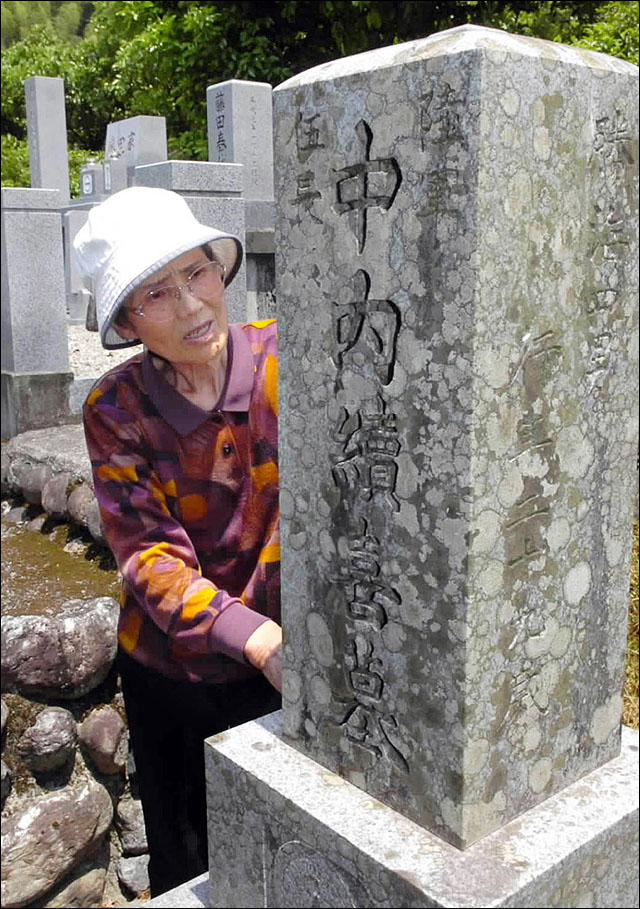Japan says two men may be long-lost WW II soldiers
Reports say pair have been living in Philippines
General Santos, Philippines ? Sixty years after the guns of World War II went silent, reports that two Japanese Imperial Army soldiers had been found in the mountains of the southern Philippines sent Japan’s diplomats on a frantic mission Friday to try to contact them.
The two men, in their 80s, reportedly have lived on the restive southern island of Mindanao since they were separated from their division, staying on for fear they would face court-martial if they returned to Japan.
A day of waiting at a hotel in General Santos, a city 600 miles south of Manila, turned to disappointment for Japanese diplomats.
Prime Minister Junichiro Koizumi’s spokesman, Yu Kameoka, said in Tokyo the men apparently were reluctant to meet with the officials because of the large crowds, including journalists, waiting to see them.
Diplomats were trying to schedule a meeting today through a Japanese mediator, who had contacted the country’s embassy in Manila about the men.
Embassy spokesman Shuhei Ogawa said they were giving the story “another day.” He said it was too early to tell if the report was true that the men were the latest of a handful of old soldiers who held out on various islands for decades after the war ended in August 1945.
The story created huge interest in Japan, particularly among veterans marking the 60th anniversary of the war’s end.
One veteran, Goichi Ichikawa, said he had heard of at least three Japanese men living in the mountains of Mindanao from someone who went there late last year and alerted Japan’s government in February.

Yoshiko Nakauchi, sister-in-law of former Japanese Imperial Army soldier Tsuzuki Nakauchi, visits the tomb of the soldier set up in his hometown of Ochi, on the island of Shikoku, Japan. Nakauchi is thought to be one of two former Japanese servicemen who have been hiding in the mountains of the southern Philippines island of Mindanao since World War II.
“It’s amazing they were able to survive for 60 years,” Ichikawa said in the Japanese city of Osaka. “Of course I was stunned.”
Japanese broadcaster NHK said embassy officials were reluctant to go meet the two men outside town because of the danger of Islamic rebels and criminal gangs. The area where the pair were supposedly found is notorious for ransom kidnappings and attacks by Muslim separatists, who have waged war for three decades. Communist rebels also are active.
“We are doing our best to contact the mediator,” Japanese Consul Seiichi Ogawa said. “We will just continue to wait.”
It wasn’t clear how the two mystery men had lived on Mindanao all these years, but there was speculation they might have married Filipina wives and even adopted Filipino names.
Japan’s Kyodo News agency said the two might be Yoshio Yamakawa, who would be 87, and Tsuzuki Nakauchi, 85, from the 30th Division of the Imperial Japanese Army.
The Philippines, then a U.S. colony, was a major battleground in the Pacific. Japanese occupation is remembered as brutal and marked by massacres of civilians and deaths of hundreds of thousands of U.S. and Filipino soldiers.
According to Japanese government records, the men were part of a unit of 16,000 soldiers on Mindanao, of which only about 3,000 were thought to have survived the war.
Japan’s government first learned of the possibility that four former soldiers might still be living in the Philippines late last year, from an official collecting information about the remains of former troops.
In September, a Japanese national in the lumber business in Mindanao ran into the four men in the mountains, Japan’s Sankei Shimbun newspaper reported. It was learned later that they wanted to go back to Japan but were afraid they would be court-martialed for withdrawing from action, Sankei said.
Years after the war ended, there were signs in the Philippines warning about Japanese soldiers still in the hills.
A few surrendered as late as 1948, then in March 1974, intelligence officer Lt. Hiroo Onoda came out of hiding on northern Lubang island. He refused to give up until the Japanese government flew in his former commander to formally inform him the war was over.
The last of the three known former Japanese soldiers to surrender, in December 1974, was a Taiwanese national, Teruo Nakamura, who fought for the Japanese army on Indonesia’s Morotai island. He returned to Taiwan at age 57.

